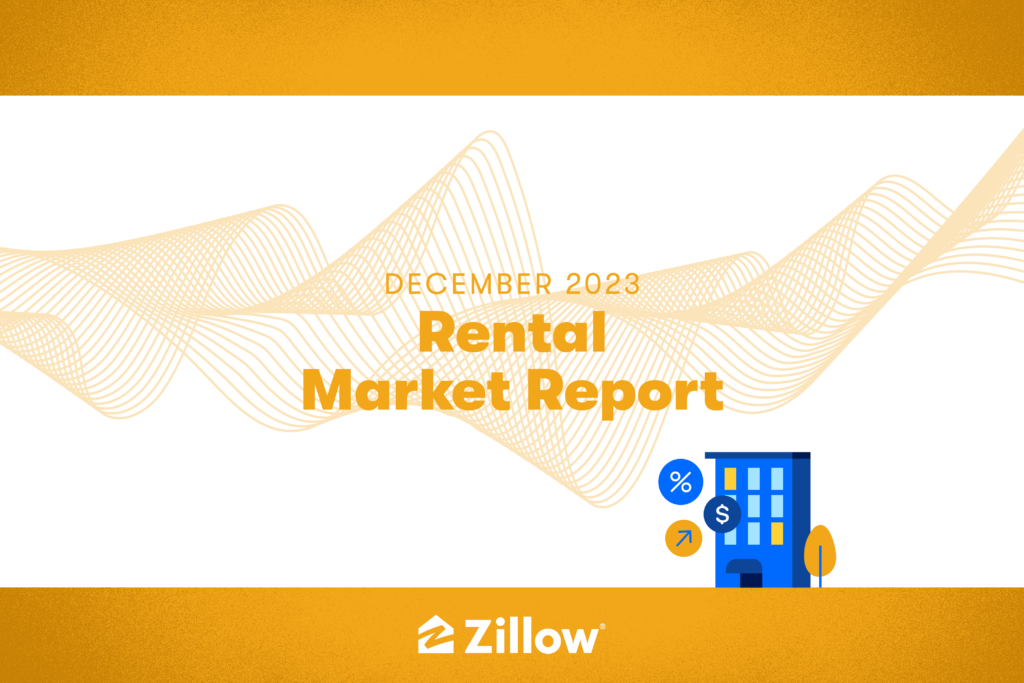2024 Kicks Off With Mixed Signals in Rental Housing (December 2023 Rental Market Report)


The rental market showed signs of cooling in December, with typical rents in the U.S. settling at $1,957, according to the Zillow Observed Rental Index (ZORI). That’s a slight (0.2%) dip from the previous month, offering modest relief for renters facing ongoing affordability challenges. However, despite the month’s decrease, rents are still up 3.3% from a year ago.
Annual rent growth has stabilized over the last few months at slightly lower than pre-pandemic norms of between 4-5%. This is good news for renters who have struggled to keep up with rapidly-rising rents over the course of the pandemic, but much of the damage to affordability has already been done. The income required to comfortably afford rent (spending 30% of income on rent) for the median renter has risen by 40.6% since pre-pandemic times and now stands at $79,264.
Single-Family Rents: Steady as She Goes
Single-family rentals, a segment that has seen significant interest since the pandemic, recorded asking rents at $2,122 in December, steady from November. These rents have jumped a considerable 35.7% since the pandemic began, with a year-over-year increase of 4.6%. The trend, however, wasn’t uniform across all metros, with markets like Boston and Jacksonville experiencing monthly decreases of 1.2% and 0.8%, respectively.
Multi-Family Rents: Feeling the Seasonal Chill
Multi-family rentals weren’t spared from the seasonal downtrend, with asking rents falling to $1,826, down 0.3% from the previous month. Since the pandemic onset, these rents have risen by 23.1%. Year-over-year, the increase stands at 2.7%, with cities like Providence (6.7%), Hartford (6.3%) leading the annual increases.
Rents for single-family homes have grown far faster than multi-family homes over the course of the pandemic. One of Zillow’s bold predictions for 2024 is that “single family rentals will become the new starter home” – this supports that conclusion and illustrates the effects of a surge in multifamily construction.
Increased Use of Rental Incentives in Recent Months
An interesting trend in December was the heightened use of rent concessions, with 32.7% of rentals on Zillow advertising incentives. This is a 0.7 percentage point increase from November and a significant 10.1 percentage point jump from last year. This rise in concessions is especially prevalent in cities like Oklahoma City and Memphis, which each saw a 4 percentage point increase from November to December.
The State of Rent Affordability
Rent affordability remains a crucial issue, with the median household needing to spend 29.5% of its income on a new rental in November (the most recent data available). This is a marginal increase from the previous month, but still higher than the pre-pandemic average of 28%. Metro areas like Miami, where renters need to allocate 43.4% of their income for rent, and New York, requiring 39.7%, continue to present significant affordability challenges.
For a closer look at how these trends play out in different areas, continue reading for detailed data on regional variations.
Typical Rents (all rentals):
Single-Family Rent Trends
Multi-Family Rent Trends
Rent Concessions
Rent Affordability